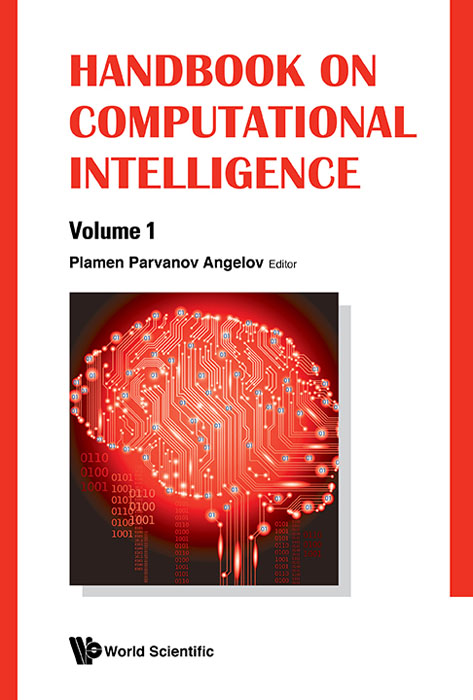
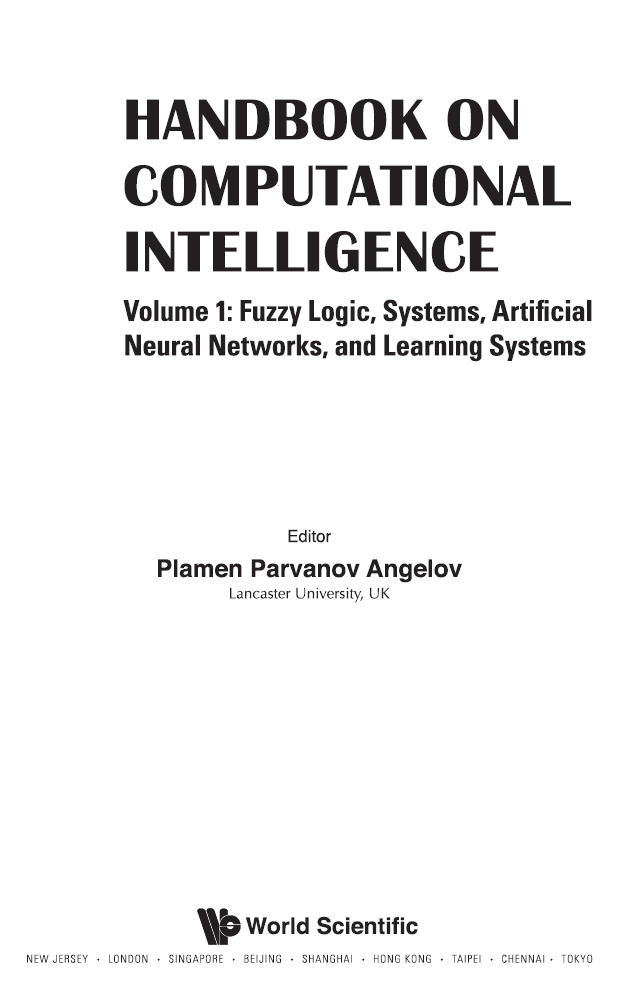
Published by
World Scientific Publishing Co. Pte. Ltd.
5 Toh Tuck Link, Singapore 596224
USA office: 27 Warren Street, Suite 401-402, Hackensack, NJ 07601
UK office: 57 Shelton Street, Covent Garden, London WC2H 9HE
British Library Cataloguing-in-Publication Data
A catalogue record for this book is available from the British Library.
HANDBOOK ON COMPUTATIONAL INTELLIGENCE
In 2 Volumes
Volume 1: Fuzzy Logic, Systems, Artifical Neural Networks, and Learning Systems
Volume 2: Evolutionary Computation, Hybrid Systems, and Applications
Copyright 2016 by World Scientific Publishing Co. Pte. Ltd.
All rights reserved. This book, or parts thereof, may not be reproduced in any form or by any means, electronic or mechanical, including photocopying, recording or any information storage and retrieval system now known or to be invented, without written permission from the publisher
For photocopying of material in this volume, please pay a copying fee through the Copyright Clearance Center, Inc., 222 Rosewood Drive, Danvers, MA 01923, USA. In this case permission to photocopy is not required from the publisher.
ISBN 978-981-4675-00-0 (Set)
ISBN 978-981-4675-03-1 (Vol. 1)
ISBN 978-981-4675-04-8 (Vol. 2)
In-house Editors: Dipasri Sardar/Amanda Yun
Typeset by Stallion Press
Email:
Printed in Singapore
Dedication
Computational Intelligence is only possible if we have a Computer. This work is dedicated to the inventor of the digital computer, John Vincent Atanasoff.
Contents
Fernando Gomide
Andrzej Bargiela and Witold Pedrycz
Edwin Lughofer
Rashmi Dutta Baruah and Diganta Baruah
Abdelhamid Bouchachia
Igor krjanc and Sao Blai
Bruno Sielly Jales Costa
Leonid Perlovsky
Pter rdi and Mihly Bnyai
Hans-Georg Zimmermann, Ralph Grothmann and Christoph Tietz
Nikola Kasabov
Kyriakos G. Vamvoudakis, Frank L. Lewis and Draguna Vrabie
Denis Kolev, Mikhail Suvorov and Dmitry Kangin
Carlos A. Coello Coello, Carlos Segura and Gara Miranda
Guilherme Costa Silva and Dipankar Dasgupta
Fevrier Valdez
Qiangfu Zhao and Yong Liu
Michela Antonelli, Pietro Ducange and Francesco Marcelloni
Oscar Castillo
Radu-Emil Precup and Radu-Codru David
David
Patricia Melin
Michael J. Watts and Nikola Kasabov
Simon Miller, Christian Wagner and Jonathan Garibaldi
Jose Macias Hernndez
Adham Atyabi and Samia Nefti-Meziani
Mahmoud Abou-Nasr, Fazal Syed and Dimitar Filev
Introduction by the Editor
The term Computational Intelligence was coined more recently (at the end of the last century when a series of high profile conferences were organized by the Institute of Electrical and Electronics Engineers (IEEE) leading to the formation of the Computational Intelligence Society within the IEEE), however, the disciplines and problems it covers have been in existence for a much longer period of time. The very idea of developing systems, devices, algorithms, techniques that possess characteristics of intelligence and are computational (not just conceptual) dates back to the middle of the 20th century or even earlier and is broadly associated with the so-called artificial intelligence. However, artificial intelligence is nowadays rather linked with logic, cognition, natural language processing, induction and so on, while computational intelligence has been developed in a direction that can be described as nature-inspired alternatives to the conventional/traditional computing approaches. This includes, but is not limited to:
Fuzzy logic (as a more human-oriented approach to reasoning);
Artificial neural networks (mimicking the human brain);
Evolutionary algorithms (mimicking the population-based genetic evolution), and
Dynamically evolving systems based on the above.
Some authors also attribute other areas of research such as belief-based DepmsterShafer theory, chaos theory, swarm and collective intelligence, etc. on the margins of Computational Intelligence. It is also often the case that the application areas such as pattern recognition, image processing, business and video analytics and so on are also attributed or linked closely to Computational Intelligence; areas of research that are closer to Statistical Learning (e.g., Support Vector Machines), probability theory, Bayesian, Markov models etc. are also sometimes considered to be a part of Computational Intelligence.
In this handbook, while not closing the door to all possible methods and alternatives, we keep clear the picture of Computational Intelligence as a distinct area of research that is based on the above mentioned pillars and we assume that the other areas are either applications of Computational Intelligence methods, techniques or approaches or research areas that gravitate around Statistical Learning.
The primary goal of the area of Computational Intelligence is to provide efficient computational solutions to the existing open problems from theoretical and application points of view in understanding, representation, modeling, visualization, reasoning, decision, prediction, classification, analysis and control of physical objects, environmental or social processes and phenomena to which the traditional methods, techniques and theories (primarily, so-called first principles, deterministic, often expressed as differential equations and stemming from mass-and energy-balance) cannot provide a valid or useful/practical solution.
Another specific feature of Computational Intelligence is that it offers solutions that bear characteristics of intelligence which is usually attributed to humans only. This has to be considered broadly rather than literally as in the area of artificial intelligence. For example, fuzzy logic systems can make decisions like humans do. This is in a stark contrast with the deterministic type expert systems as well as with the probabilistic associative rules. For artificial neural networks, one can argue that they process the data in a manner which is more like what human Brain does. In evolutionary computation, the population of candidate solutions evolves towards the optimum in a manner similar to the way species and living organisms evolve in Nature. Finally, in dynamically evolving systems, self-development is very much like in the real life, where we, humans, learn individually from experience in a supervised (from parents, teachers, peers etc.) or unsupervised (self-learning) manner. Learning from experience, we can develop a rule-base starting from scratch and constantly update this rule-base by adding new rules or removing the outdated ones; or similarly, the strengths of the links between neurons in our brain can dynamically evolve and new areas of the brain can be activated or deactivated (thus, dynamically evolving neural networks).
Next page
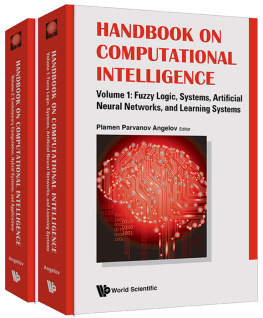
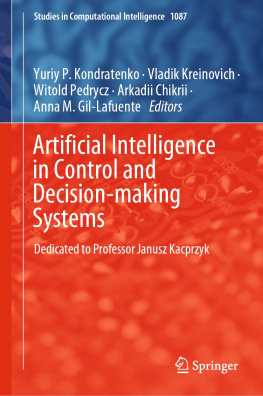
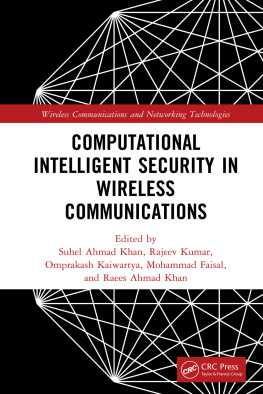
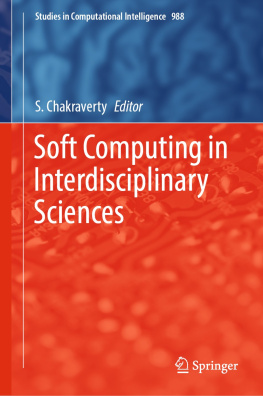
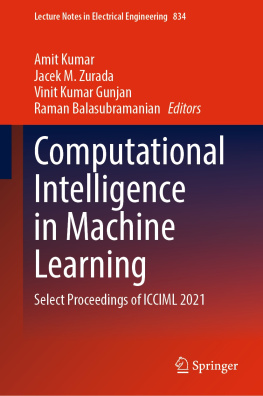
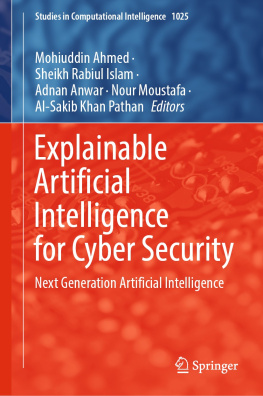

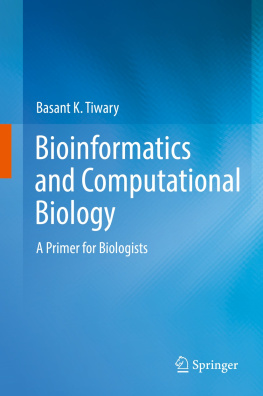


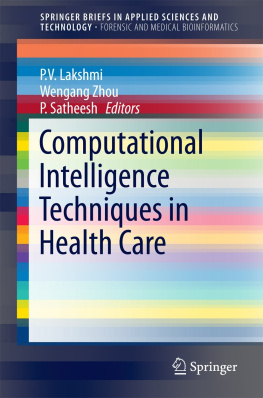
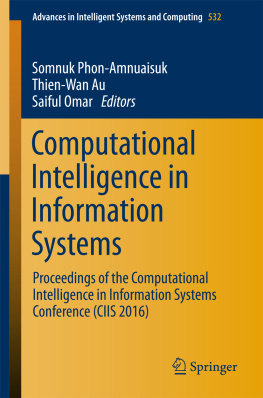


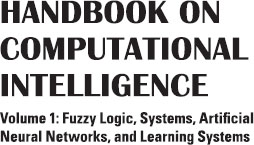

 David
David